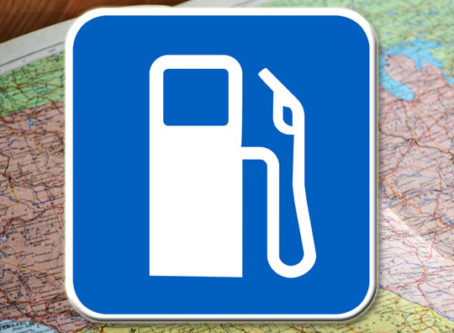Legislation in 12 states cover rules on ticket cameras
Pursuit continues at statehouses around the country for legislative action on the use of ticket cameras, or automated cameras used to ticket drivers.
More than 500 communities around the country employ red-light and/or speed cameras to nab drivers who disobey traffic rules, the Insurance Institute of Highway Safety reports.
Officials with the Owner-Operator Independent Drivers Association say the focus on the revenue-generating devices ignores the more logical and reasoned approach to roads and traffic: keep traffic moving in as safe a manner as possible.
Below is a rundown of legislation on the topic in statehouses from Rhode Island to Wyoming.
Alabama
An Alabama House bill addresses automated ticket programs.
About a dozen communities around the state that include Montgomery, Tuscaloosa and Selma use red-light cameras and/or speed cameras.
Rep. Andrew Sorrell, R-Muscle Shoals, is behind a bill to ban automated traffic cameras statewide. The bill would repeal any city ordinances allowing the use of the devices. HB366 would apply the rule to red-light and speed cameras.
The bill is in the House Public Safety and Homeland Security Committee.
Connecticut
One Connecticut state lawmaker wants to be proactive in addressing concern about the use of red-light cameras.
Currently, there are no communities in the state using red-light or speed cameras.
Sponsored by Rep. Kara Rochelle, D-Ansonia, the bill would prohibit the use of red-light cameras in the state. The bill does not include a provision addressing speed cameras.
HB6078 is in the Joint Transportation Committee.
Florida
A renewed effort at the Florida statehouse would ban municipalities from using red-light cameras to issue citations.
There are 58 local governments around the state operating more than 500 red-light cameras, according to the Florida Department of Highway Safety and Motor Vehicles. Fine amounts of $158 are dispensed for actions that include turning right on red, failing to come to a complete stop, or crossing the line where a camera is focused on an intersection.
Numbers available from the agency show that municipalities statewide have sent out more than 1 million notices of violation annually for the past four years.
Additionally, the state’s numbers show the total crashes occurring at intersections before and after red-light cameras were installed has increased by 15%. The number of fatal crashes, however, has decreased from 28 to 24.
Attempt to repeal use of ticket cameras
Rep. Anthony Sabatini, R-Howey-in-the-Hills, has introduced a bill to repeal the program permitting the use of the ticket tool. Locales with programs already in place would be required to remove the devices by 2024.
Sabatini has cited the program’s failure to improve driving behavior for his attempt to repeal the law.
The bill, HB6009, awaits consideration in multiple committees.
Illinois
Multiple bills at the Illinois statehouse are intended to rein in use of automated enforcement programs.
There are 68 locales around the states that use red-light cameras, the Insurance Institute for Highway Safety reports. The city of Chicago has red-light cameras and speed cameras. Additionally, speed cameras are permitted in work zones.
HB1718 would prohibit municipalities from using red-light cameras. Limits would also be placed on the use of speed cameras.
HB3015 would implement a statewide ban on the use of red-light cameras. Additionally, municipalities would have limits placed on using speed cameras.
The bills are in the House Rules Committee.
Indiana
Three bills at the Indiana statehouse died that covered the use of ticket cameras along certain stretches of roadway throughout the state.
State law now authorizes fines between $300 and $1,000 for speeding in work zones. Statute does not allow nor prohibit the use of speed cameras.
HB1465 sought to authorize the Indiana State Police to set up cameras in highway work zones to enforce speeds.
A second bill, HB1388, called for repeat offenders to receive fines in the mail of up to $75 for exceeding the posted speed by at least 11 mph. Devices would be in use when workers are present.
The Senate version, SB41, met the same fate.
Iowa
An effort underway in the Iowa Senate would ban the use of all ticket cameras.
The nonpartisan Legislative Services Agency has reported that eight cities around the state operate, or have operated, a total of 78 speed and red-light camera devices. It is estimated the cities collected $12 million in revenue via the devices over a one-year period.
The Senate Judiciary Committee voted to advance a bill to prohibit ticket programs starting July 1, 2021.
An exception would be made for an S-curve on Interstate 380 in downtown Cedar Rapids.
The Iowa Department of Transportation previously ordered cameras around the state to be turned off.
The cities of Des Moines, Cedar Rapids and Muscatine later challenged the decision in court. The Iowa Supreme Court agreed with the cities in April 2018 in a ruling that the department does not have the authority to order cities to remove cameras from highways and interstates.
As a result, the decision on traffic cameras must be made by the Legislature.
The bill, SF516, awaits further consideration in the Senate.
Kentucky
One Kentucky House bill would allow the use of speed cameras in highway work zones.
Automated enforcement cameras could be used to detect drivers exceeding the posted speed limit by more than 10 mph. Violators would face fines starting at $75.
The bill, HB496, is in the House Committee on Committees.
Maryland
Multiple efforts underway at the Maryland statehouse cover the use of traffic control signal monitoring systems.
There are six counties around the state that have red-light camera programs. The city of Baltimore and 22 other jurisdictions use the devices. Violators face fines up to $100.
Three bills (HB618, HB627 and HB978) would authorize the use of speed cameras at individual locations in Prince George’s County. A separate bill, HB971, would allow a speed camera to be posted along state Route 333 in Talbot County.
Another bill, HB967, scheduled for a hearing on Thursday, March 4, would authorize two cameras to be posted on Interstate 83 in Baltimore City
The bills are in committee.
New York
One New York bill would allow the state to move forward with placing speed cameras in construction zones.
Data from the New York State Department of Transportation shows that over a seven-year period there were 3,450 wrecks in work zones on state highways. There were 50 fatalities and more than 1,100 injuries to drivers and workers.
“Stronger enforcement of speeding in work zones has the potential to significantly reduce both the incidence of motorists and worker fatalities while training better overall motorist behavior,” Assemblyman William Magnarelli, D-Syracuse, wrote in justification for the change.
The bill, A485, is in the Assembly Transportation Committee.
Oklahoma
The Oklahoma Senate has approved a bill to prohibit the use of red-light cameras in the state.
Currently, there is no community in the state that employs the ticketing mechanism.
Sponsored by Rep. Nathan Dahm, R-Broken Arrow, the bill would forbid all law enforcement agencies in the state from contracting with a private entity to setup photo monitoring devices to detect traffic violations.
SB441 has moved to the House.
Meanwhile, the House voted this week to kill a bill to permit the use of speed cameras in construction or maintenance zones. HB1814 specifies that construction or maintenance workers must be present during the time of the violation.
Authorized use of the equipment would be limited to work areas operated by the Oklahoma Department of Transportation or the Oklahoma Turnpike Authority.
The bill specified that vehicle owners would not be held liable for recorded violations if the driver at the time of the violation cannot be identified via the photograph or other recorded images.
Rhode Island
Pursuit underway at the Rhode Island statehouse would authorize the expansion of the state’s speed camera program.
Currently, municipalities around the state are permitted to adopt ordinances to use speed cameras in school zones. The cities of Pawtucket and Providence are the only locales to act. Violators face $50 fines.
A Senate bill would authorize the use of speed cameras on all state and local roads.
S64 is in the Senate Judiciary Committee.
Wyoming
In Wyoming, a bill would allow the use of cameras to enforce multiple traffic violations. Among the violations included are speed limits, size and weight limits.
Fine amounts would be in line with existing statute for affected violations.
The Senate Transportation Committee voted to advance the bill that includes a requirement for signage to be posted to alert travelers about use of ticket cameras.
The fiscal note attached to the bill estimates that if cameras are fully implemented along Interstates 80 and 25, in Teton Pass, and in construction zones and school zones, citation revenue could top $7 million annually.
SF3 awaits further consideration in the Senate. LL
More state trends
Keith Goble, state legislative editor for Land Line Media, keeps track of many trends among statehouses across the U.S. Here are some recent articles by him.









